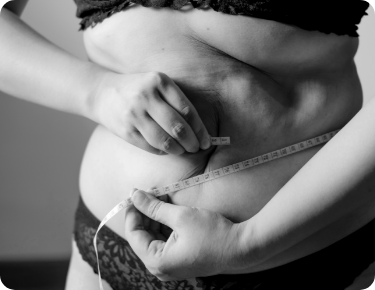Estrogen is a foundational hormone in women’s health, shaping everything from mood and metabolism to fertility and bone health. And while estrogen is produced in the ovaries, its regulation is deeply connected to the gut. At Digbi Health, we focus on the science of personalized wellness, and that includes the critical relationship between gut health and hormonal balance.
Understanding the Estrobolome
The estrobolome is the collection of gut bacteria that influence estrogen metabolism. These bacteria help regulate how much estrogen is reabsorbed into the bloodstream versus how much is eliminated. A well-functioning estrobolome supports hormonal balance, while a disrupted one may contribute to estrogen dominance, where estrogen levels are disproportionately high relative to progesterone.
Estrogen dominance has been associated with symptoms such as:
- PMS (bloating, mood swings, breast tenderness)
- Irregular cycles or heavy periods
- Difficulty losing weight
- Worsening perimenopausal symptoms
Gut imbalances, particularly reduced microbial diversity and elevated inflammation, can influence how estrogen is processed in the body.
The Gut-Hormone Connection in PMS

Image via Lakeside Natural Medicine
For those experiencing PMS, inflammation and poor gut function may intensify symptoms. A disrupted microbiome can impair estrogen regulation, elevate stress responses, and alter digestion, feeding into the PMS experience.
Digbi’s guidance includes:
- Increasing fiber to support elimination and reduce inflammatory load
- Supporting bacteria like Lactobacillus and Bifidobacterium (commonly tracked in Digbi gut tests) for their roles in digestive and immune support
- Focusing on anti-inflammatory foods and stress regulation through sleep, movement, and mindfulness
Menopause and the Microbiome
During menopause, estrogen levels naturally decline. This hormonal shift affects everything from fat storage and muscle maintenance to cognition and sleep. What’s less known is how the gut also changes during this time. Digbi's internal health education notes that microbial diversity tends to decrease after menopause, which can increase systemic inflammation and disrupt digestion.
Digbi supports menopausal members by recommending:
- Magnesium-rich foods like leafy greens and seeds to reduce sleep disturbances and muscle tension
- Omega-3 fats from fish, flax, or chia to lower inflammation
- Soy-based foods such as tofu and tempeh, which may offer mild phytoestrogen benefits
- Fiber to regulate digestion, metabolism, and the gut’s role in estrogen modulation
Fertility and the Gut
Healthy estrogen levels are crucial for ovulation and endometrial health, which are two key components of fertility. A disrupted microbiome may contribute to hormonal imbalances, chronic inflammation, and nutrient malabsorption, all of which can affect reproductive function.
Digbi’s approach for those focused on fertility:
- Encouraging a diverse plant-based diet to build microbial diversity
- Limiting refined sugar and processed foods to support blood sugar and hormone stability
- Monitoring key gut markers to guide dietary adjustments that enhance nutrient uptake and reduce inflammatory triggers
How to Support Estrogen Balance Through Gut Health
Digbi recommends the following science-backed habits to nurture the gut and support hormonal harmony:
1. Emphasize Fiber: Fiber helps bind and eliminate excess estrogen. Aim for 25–30g per day from foods like oats, legumes, cruciferous vegetables, berries, and flaxseed.
2. Add Fermented Foods: Include yogurt, kimchi, and other fermented vegetables to promote beneficial bacteria like Lactobacillus, which are linked to improved digestion and reduced inflammation.
3. Focus on Microbiome Diversity: Eating 30+ different plant foods per week can increase microbial diversity, helping balance gut function and potentially hormone processing.
4. Reduce Inflammatory Foods: Limit ultra-processed foods, added sugars, and trans fats which can elevate inflammation and negatively impact the microbiome.
5. Follow a Personalized Plan: Your microbiome is unique. Digbi analyzes your gut and DNA data to provide customized food, lifestyle, and coaching plans that optimize your metabolic and hormonal health from the inside out.
Final Thoughts
Your gut is not just a digestive organ. It’s a key regulator of hormonal balance! Through the lens of the estrobolome, we gain insight into how microbiome health can influence estrogen levels, menstrual cycle symptoms, menopause transitions, and fertility potential.
At Digbi Health, we help you build a resilient gut and a personalized path toward hormonal balance, so you can feel more like yourself, more often.
Let’s start with your gut. Let’s balance your health.
Source: Lakeside Natural Medicine






